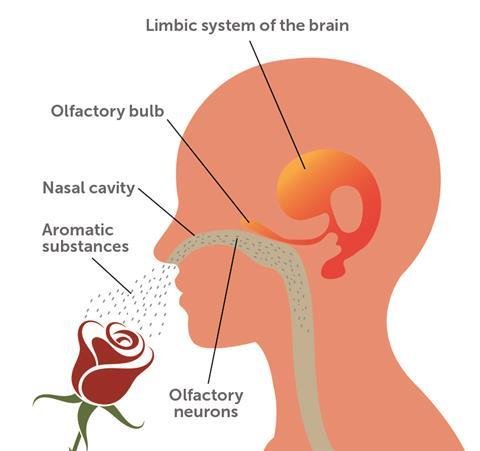Hyposmia is a condition characterized by a reduced ability to smell, rather than a complete loss of smell (anosmia). It can vary in severity, from a slight decrease in the sense of smell to a significant impairment. Hyposmia can impact taste, as the sense of smell plays a crucial role in flavor perception.

Causes of Hyposmia:
- Upper Respiratory Infections:
- Example: The common cold or influenza can cause temporary hyposmia due to nasal congestion and inflammation.
- Sinusitis:
- Cause: Inflammation or infection of the sinuses can obstruct the nasal passages and impair smell.
- Allergies:
- Cause: Allergic reactions can cause nasal congestion and inflammation, affecting the sense of smell.
- Nasal Polyps:
- Cause: Noncancerous growths in the nasal passages or sinuses that can block airflow and impact smell.
- Aging:
- Cause: The sense of smell can naturally decline with age due to changes in the olfactory system.
- Exposure to Environmental Toxins:
- Examples: Exposure to pollutants or chemicals can affect olfactory function.
- Neurodegenerative Diseases:
- Examples: Parkinson’s disease and Alzheimer’s disease can lead to hyposmia.
- Head Injury:
- Cause: Trauma to the head or face can damage the olfactory nerves or brain regions involved in smell.
- Gastroesophageal Reflux Disease (GERD):
- Cause: Acid reflux can affect the sense of smell, particularly if it leads to nasal inflammation.
- Medications:
- Examples: Some medications can cause hyposmia as a side effect.
- Nutritional Deficiencies:
- Example: Deficiencies in vitamins or minerals, such as zinc or vitamin B12, can lead to reduced smell.
Symptoms:
- Reduced Sense of Smell: Difficulty detecting or identifying certain odors.
- Altered Taste: Reduced ability to taste food due to impaired olfactory function.
Diagnosis:
- Medical History and Physical Examination:
- Discussing symptoms, their onset, and any related conditions or exposures.
- Olfactory Testing:
- Tests to evaluate the ability to detect and identify different smells.
- Nasal Endoscopy:
- Examining the nasal passages for any obstructions or abnormalities.
- Imaging:
- CT or MRI Scans: To assess nasal passages, sinuses, and brain for structural issues or damage.
- Blood Tests:
- To check for underlying conditions such as nutritional deficiencies, infections, or systemic diseases.
Homeopathy for Hyposmia:
Some homeopathic remedies that might be considered include:
- Kali Bichromicum: For hyposmia associated with nasal congestion and thick mucus.
- Natrum Muriaticum: For hyposmia with a history of respiratory infections and a dry, blocked sensation.
- Phosphorus: For reduced smell with a tendency to catch colds easily and a general weakness.
- Arsenicum Album: For hyposmia with associated symptoms of anxiety or digestive issues.

